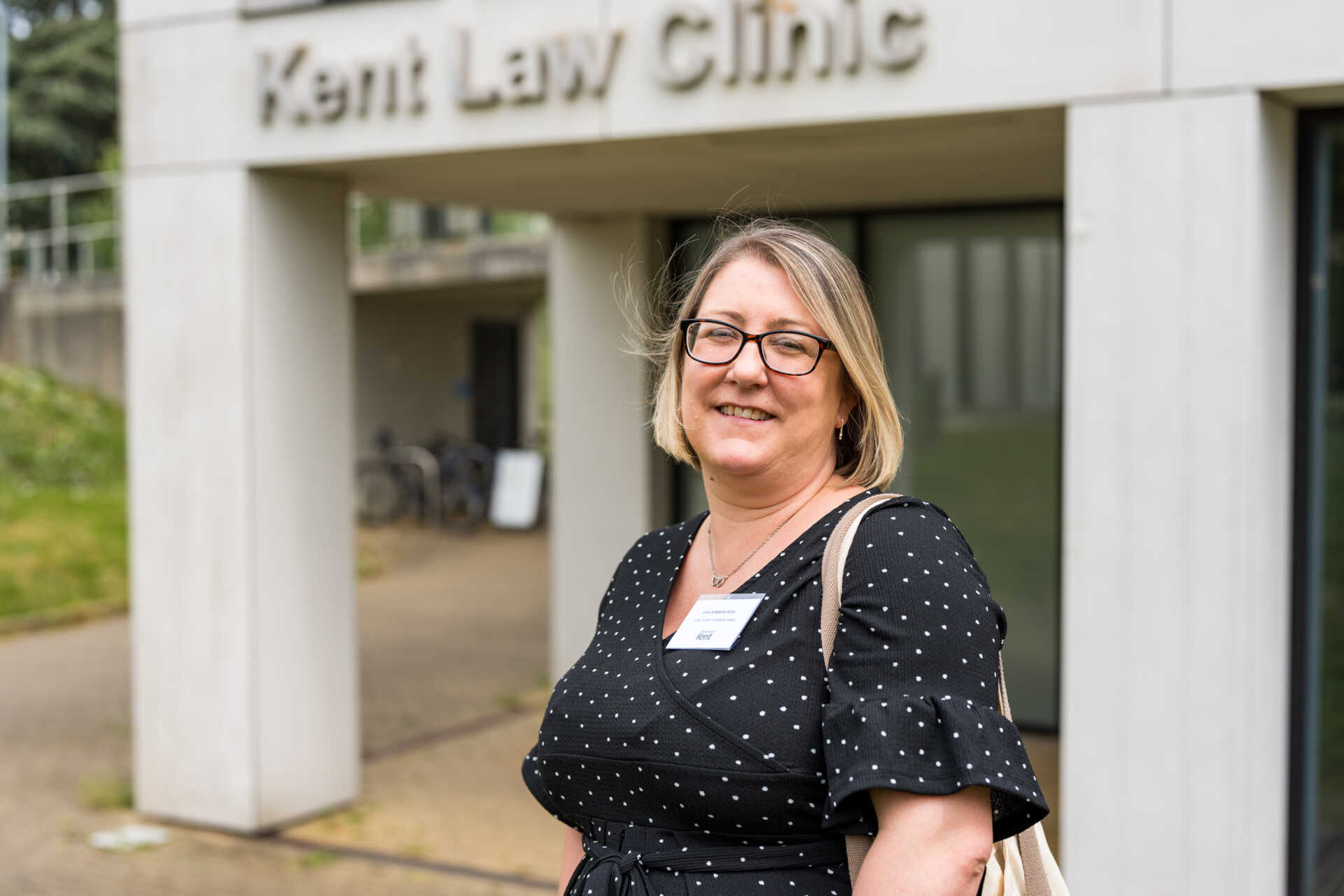Sian summers-Rees

Law LLB, 1999
After graduating from Kent Law School in 1999, Sian Summers-Rees has dedicated her career to social justice and delivering meaningful change.
For almost two decades she has worked with refugees and asylum seekers and in her current role as Chief Officer for City of Sanctuary UK. She champions cities and institutions to become places of welcome and inclusion for those seeking refuge.
Tell us about your career path since graduation.
Following my graduation from Kent, I completed the Legal Practice course at Cardiff University and initially worked as a paralegal in Family law.
A turning point came when I secured a position with the Commission for Racial Equality as a Race Discrimination Caseworker. During this time, my commitment to racial justice deepened tremendously, and my eyes were opened to institutions eager to improve their culture, policies, and practices. Working with the police was particularly encouraging as they were acknowledging the institutional racism that existed following Stephen Lawrence's tragic murder. It felt like a time of change, or so I thought!
When the funding for that position ended, I joined the Welsh Refugee Council as their Senior Advice Caseworker. The dispersal system for asylum seekers was relatively new in the UK and although the work was challenging at times, I made lifelong friends and discovered my true calling.
In 2010, I moved away from frontline advice work to become Chief Officer at Displaced People in Action (DPIA). This role focused on supporting the integration of asylum seekers and refugees and building understanding within communities. I had overall responsibility for delivering integration projects and services, including the Home Office funded Refugee Employment and Integration service.
During this period, I also became involved with the City of Sanctuary movement as a volunteer, having been one of the founding members of both Swansea and Cardiff City of Sanctuary groups. In 2016, I had the privilege of being appointed Chief Officer for City of Sanctuary UK.
I have also been a volunteer for Asylum Justice, a charity providing free asylum and immigration advice in Wales, for over 15 years. As a trustee I played a key role in transitioning it from being entirely volunteer-led to employing its first Legal Director.
Can you share a professional highlight from your career so far?
In 2007, I led a successful campaign for secondary healthcare for asylum seekers in Wales whose appeal rights had exhausted. This involved mobilising grassroots organisations and providing briefings to candidates prior to the Welsh Assembly elections, then continuing this advocacy with elected Ministers following the election.
I was also incredibly privileged to become the Chief Officer for City of Sanctuary in 2016, which has allowed me to develop the organisation and support the movement of welcome.
How did your time at Kent help you achieve your current career?
Kent’s critical approach to law has undoubtedly helped me achieve my current career. On a personal level, it made me passionately committed to social and racial justice by encouraging me to always challenge traditional boundaries.
From a practical standpoint, I was taught how to become an advocate for justice and social change, to think critically, and to strive for creating meaningful change.
I also met friends for life who have supported me through life's ups and downs - without whom I wouldn't have achieved what I have!
Do you have a favourite memory from your time at Kent, maybe one that was unlocked by your recent visit?
One of my most influential memories was meeting Neville Lawrence (father of Stephen Lawrence) and his solicitor Imran Khan. What they shared about Stephen's murder and the police failures had a profound impact on me, but it was Neville's and hope and commitment to bringing about change that truly moved me.
I also have many wonderful memories from my time as Secretary of the Kent Critical Lawyers Group and National Critical Lawyers Group, where I met so many inspirational people including my friend and mentor, the late Professor Ian Grigg-Spall.
What advice would you give to our current/prospective students who are looking to get into the same line of work?
Take up as many opportunities as possible to volunteer with people seeking sanctuary. You'll meet the most inspiring, resilient people and you’ll gain a much better understanding of what working in the refugee sector is like.
I must also emphasise that frontline casework is extremely challenging. It's impossible not to be affected by what you hear, but you must work diligently to protect your own wellbeing.
What does it mean for an institution to be a University of Sanctuary?
For an institution to be a University of Sanctuary it must embody a genuine commitment to creating a culture of welcome and inclusion for those seeking sanctuary. It's about more than just words or a title—it's about taking concrete actions across all aspects of university life and developing initiatives to support refugee and asylum-seeking students.
Beyond this, a University of Sanctuary integrates awareness of refugee and migration issues into teaching and research, helping to build understanding among all students and academics. It reaches beyond campus boundaries to engage with local communities and organisations supporting refugees to become part of the wider movement of welcome.
In essence, a University of Sanctuary transforms an educational institution into a place of safety, learning, and empowerment for people who have been displaced—while also educating the wider student body about the realities of forced migration and inspiring them to become agents of positive change, just as my own university experience inspired my career path.